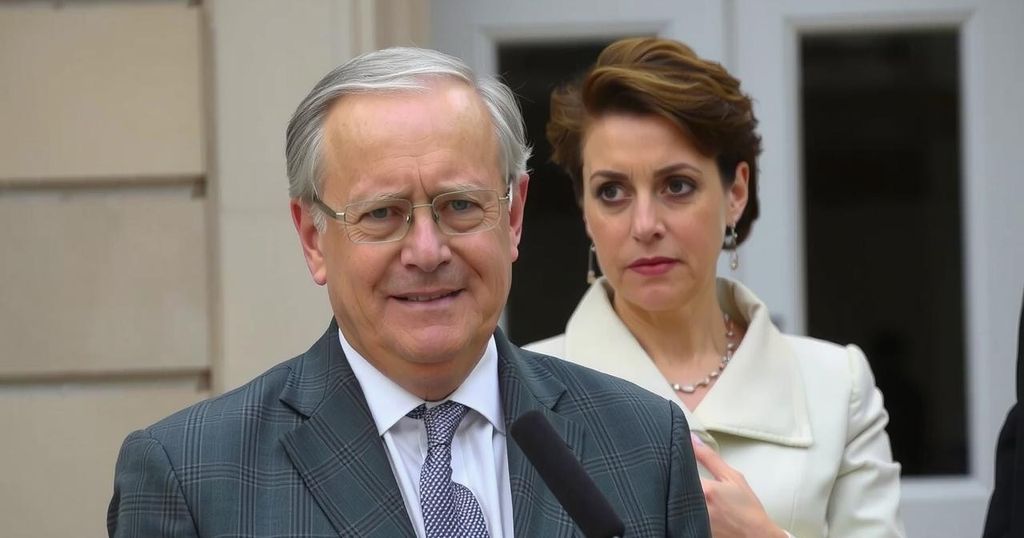German Foreign Minister Annalena Baerbock visited Syria for talks with the new rebel-led government following the ousting of President Bashar Assad. This development comes with the rise of Hayat Tahrir al-Sham, now in control of the country, and underscores the importance of an inclusive political system as a prerequisite for relations with Germany and the EU.
On March 1, 2025, Germany’s Foreign Minister Annalena Baerbock visited Damascus, Syria, to engage in discussions with the newly established government formed by the rebels. Accompanying her was French Foreign Minister Jean-Noel Barrot. This visit follows a significant shift in power within Syria, characterized by the rapid ascension of rebel factions, notably the Islamist group Hayat Tahrir al-Sham (HTS), which has taken control after former President Bashar Assad’s exile to Russia. Ahmad al-Sharaa, the leader of HTS, now occupies the position of head of the transitional government.
Minister Baerbock stated that the relationship between the new Syrian government and Germany, along with the European Union, is contingent upon the representation of both men and women from diverse ethnic and religious backgrounds within the political framework of the new Syria, emphasizing the importance of their protection.
The geopolitical landscape of Syria has undergone a dramatic transformation with the recent overthrow of President Bashar Assad, prompting new diplomatic engagements. The emergence of the Islamist group Hayat Tahrir al-Sham as a central power player has fundamentally reshaped the country’s governance structure. With Assad’s resignation and subsequent refuge in Russia, questions of representation and inclusivity in the new regime’s political framework are pressing, underscoring the international community’s expectations from the rebel-led government.
The visit of Foreign Minister Annalena Baerbock signifies a crucial step in diplomatic relations between Germany, the European Union, and Syria’s transitional government. Germany’s stance emphasizes the necessity of inclusive governance that protects all citizens’ rights, laying groundwork for future collaborations contingent upon these principles.
Original Source: www.dw.com






